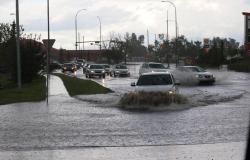This is incomprehension for Friborg medical students. At the beginning of October, while they were in the middle of classes, the 3rd year Bachelor classes received an email for the Master’s award. Seven Friborg students couldn’t believe their eyes: they were not accepted to continue their course at UniFR. They will have to continue to Basel or Zurich.
Since the creation of the Master in Medicine in 2019, Friborg students who successfully completed their Bachelor’s degree were guaranteed to continue this increasingly popular course. Indeed, when the University of Friborg allocated the forty places, it based itself on its internal directive, the first criterion of which was that of the parents’ tax domicile: “students domiciled in the canton of the University of their first choice obtain a place to study at this university.”
This criterion, which was to limit the brain drain from Friborg and fill the shortage of doctors in the canton, was taken into account for the first six rounds. But last summer, a person contacted the State of Freiburg, pointing out a legal contradiction in the selection procedure; the cantonal ordinance, which governs the university directive, never mentions the domicile criterion. The canton therefore put the academic institution in order, asking to be based on grades and no longer on residence. Consequence: seven Friborg students at the end of their Bachelor’s degree learned by email that they will have to continue their course in Basel or Zurich next year.
“I would have fought for my place”
Under cover of anonymity, two of them expressed their incomprehension to us:
“If we had known about this change a year ago, I would have fought for my place.” This final year Bachelor student feels injustice in the face of the decision that fell on her about ten days ago. According to her, the domicile criterion allowed Fribourgeois to be more united with each other, and therefore less competitive, during their Bachelor years. “I have the feeling that we did not have the same opportunity to prove what we were worth,” she laments.
His classmate feels helpless in the face of this situation. “I’m going to appeal this decision, but it’s a complex process. I don’t have much hope that it will change anything for my case, but it could change for the next volleys.”
For these two students, it is hard to imagine themselves in Basel or Zurich next year. “It’s already complicated to get by financially in Fribourg, when I have a student job here and I don’t have rent to pay. If I go to another canton, university fees will be higher and I would have to spend more to live there,” confided one of them.
For the second, language is the biggest challenge. “We have a sufficient level of German to follow the Bachelor courses, but I know that I am not capable of writing an entire final dissertation, nor of practicing in the field in this language.” The University of Friborg does not have a partnership with those of Lausanne and Geneva, but only with German-speaking institutions and Ticino.
Support from Friborg doctors
The students concerned are supported by MedAlumni, the Medical Alumni Association, but also by the Faculty of Science and Medicine itself, which advises them to appeal the decision. For Raphaël Bonvin, Professor of medical education and responsible for the operation of the Master in Medicine, the prioritization of Friborg students should not be called into question since it is to keep these students that the Master’s degree was created several years ago. years.
See Raphaël Bonvin’s reaction:
This is a short-term problem for these seven final year Bachelor students, but also a long-term blur for future students. The issue takes a political turn. Only the Grand Council can modify the University Law, which governs the cantonal ordinance.
Around twenty second-year Bachelor students from Friborg signed a petition asking to clarify the situation. It was sent last week to the Council of State. The DFAC, the training management, confirmed to us that a response will be given to them before the end of the year.






